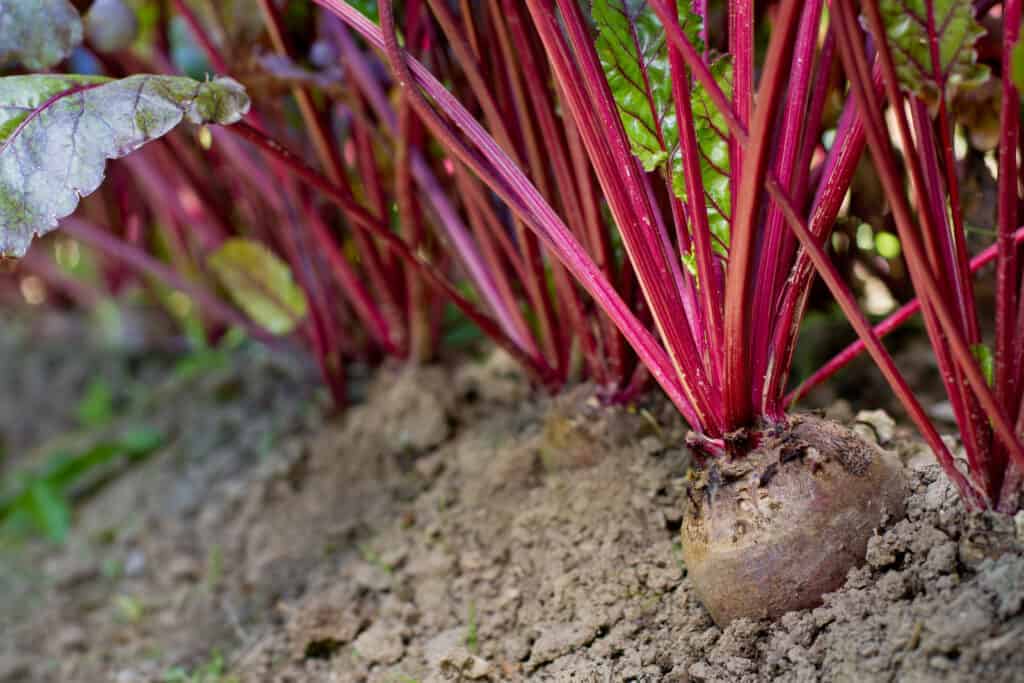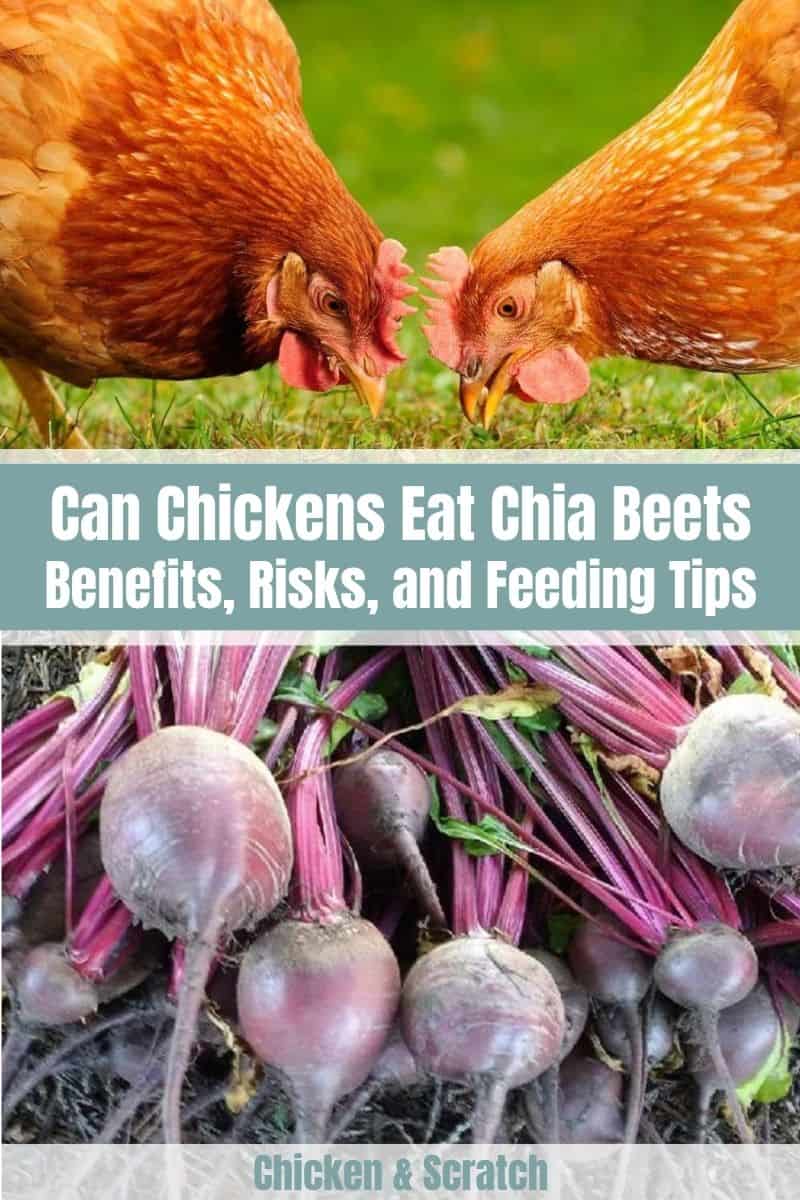
A new chicken owner is always curious about how to feed their flock. We understand—it’s essential to know what foods are safe to be part of a chicken feed. What you provide your chickens will directly affect their overall health. One of the healthiest farm crops year-round is beets, especially during winter. But the question is, can chickens eat beets?
This page has everything you need to know about chicken and beets. Plus, you’ll also learn how to grow beets yourself! Read along!
Beets and Nutrition
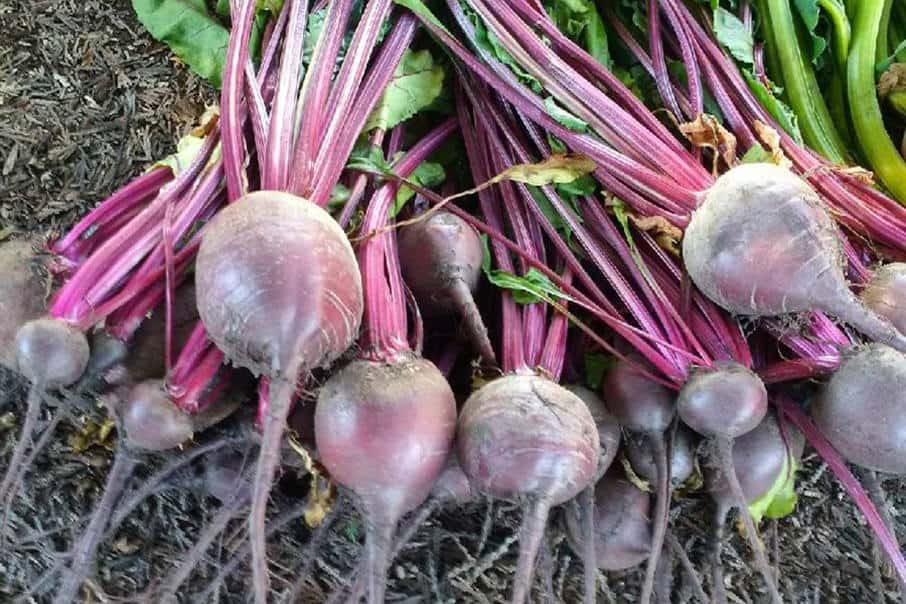
Beets, also known as beetroot, are root vegetables often used to make soup or salad. They have a sweet and earthy flavor and can be eaten raw or cooked. Beets are low in calories but high in dietary fiber and vitamins A, B1 (thiamine), B2 (riboflavin), C, and K.
They are an excellent source of magnesium, iron, calcium, potassium, and manganese. Beets are also rich in antioxidants that help protect against cancer.
Beetroots come in several colors. These include red (also called bunching), golden yellow-orange (also called table), white, and even purple! You will often find them sold with their greens still attached, which can be also used for cooking.
Beets are generally:
- Cholesterol-free
- Gluten-free
- fat-free
- Low in sodium
- A great source of fiber
With all these health and nutritional benefits of beets to humans, you’re probably wondering: can chickens eat beets? Is it safe to give your chickens beets?
The following section will answer your question and tell you everything you need to know about chickens and beets.
Can Chickens Eat Raw Beets?
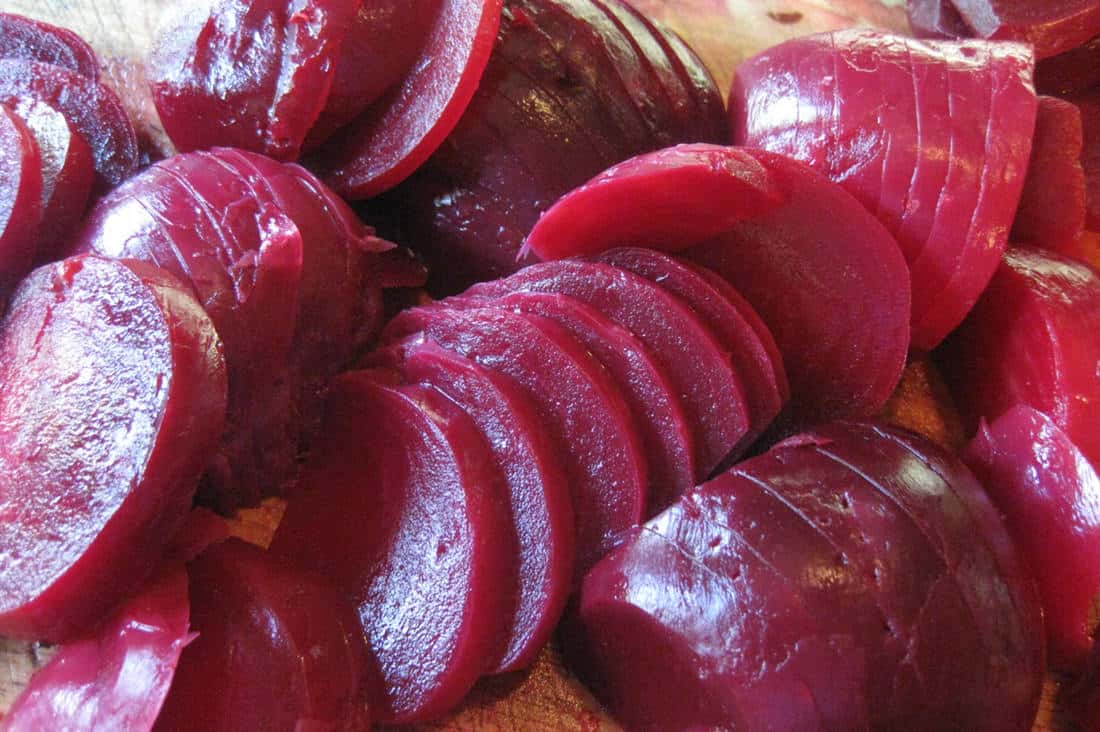
Yes, it is safe for chickens to eat raw beets! Beets can be a part of a healthy chicken feed.
Raw beets are generally safe for chicken consumption. They are known to have medicinal properties as well!
Beets belong to the root vegetable family, along with carrots and onions; they contain very little starch, so they can be fed raw without issue.
Some even say raw beets have more antioxidants, vitamins, and minerals than cooked beets!
Can Chickens Eat Cooked Beets?
Absolutely! Chickens can also eat cooked beets.
We recommend you cook or boil beets before feeding them to your chicken.
Some even say that it’s best to feed your chickens cooked beets. This is because cooked beets are easier to digest and more nutritious than raw ones.
If you prefer feeding your chickens raw food, however, there is no harm in doing so. It’s up to you how you want to provide for your flock!
For those who don’t like beets but want to feed them to their chickens, we recommend roasting them first until tender before mixing them into chicken feed or sprinkling them over their food bowl as treats!
Another excellent tip to help them eat the beets easily is to chop or grate them. By doing so, they can quickly peck the chopped beets and eat them.
Can chickens eat beet leaves, stems, and roots?
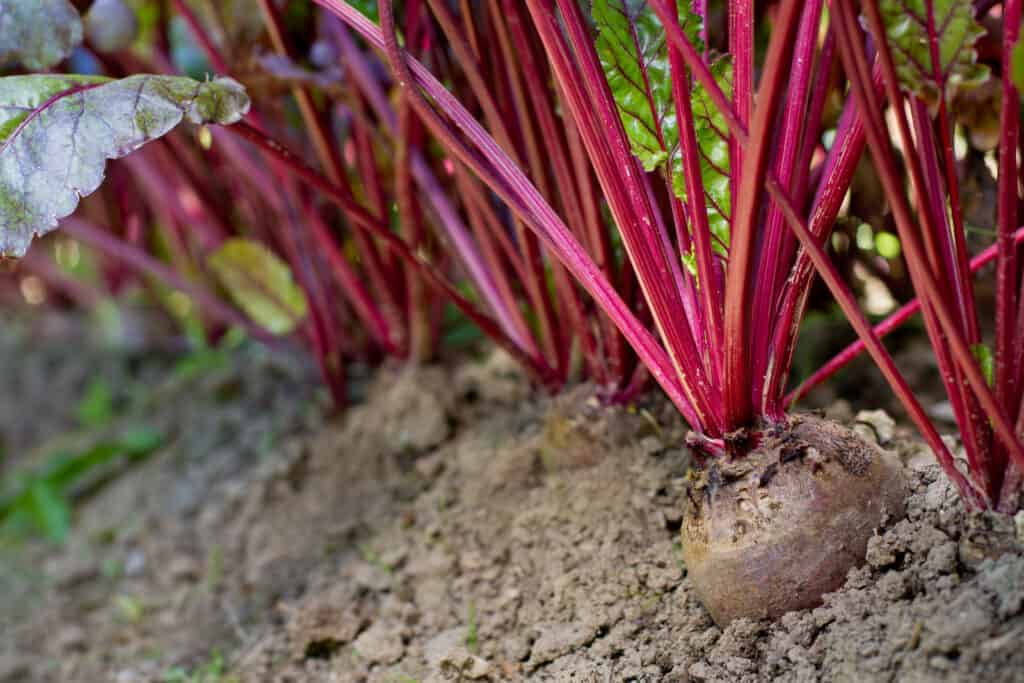
Yes, chickens can eat the leaves, stems, and roots of beets. It is safe to give your chickens beetroots, stems, and leaves. Just be sure to follow the recommended preparation tips, such as chopping them before serving.
Beet leaves, stems, and roots must only be given to chickens in moderation.
What are the benefits of beets to chickens?
It is true that beets are a healthy vegetable for chickens to eat. They are high in vitamins, minerals, and fiber. Here is a list of the nutritional and health benefits of feeding beets to your flock:
1. Good source of vitamins and minerals
Beets are a good source of vitamins and minerals, especially iron. They contain potassium and beta-carotene. The leaves, stems, and roots of beets can all be eaten by chickens.
2. Helps with digestion
Beets can help chickens with digestion because they contain fiber which helps them stay regular!
3. Boosts egg production
Feeding your hens with beets will also help them lay more eggs without having to overfeed them because the high nutrient levels found in beets will boost egg production without making them overweight or sickly!
4. Better respiratory function
Beet greens are an excellent remedy for respiratory problems such as asthma in humans and bronchitis in poultry. A study has proven that feeding dry beet pulp to broiler chickens has improved their oxygen supply in the blood.
Vitamin C also helps prevent respiratory problems, including sinus infections and colds that may affect your flock.
5. Good for growth and development
Beets are rich in vitamin C, which is essential for growth and development. They’re also a source of fiber and iron. These nutrients are excellent in maintaining your flock’s healthy growth.
Magnesium helps with bone development, and potassium supports proper nerve function. Phosphorus improves healthy cell formation in chickens—especially important as they grow older.
6. Boosts immune system
Beets are also a good source of vitamin A, niacin, folate, and vitamin C. They have small amounts of calcium and iron. Beets also contain phytonutrients that provide benefits to the immune system!
7. Lowers blood pressure
Beets are especially beneficial because they contain high levels of potassium and fiber, which help regulate blood pressure and prevent heart disease.
8. Prevents thinning of eggshells
Beets can also help prevent egg-binding and thinning of the eggs’ shells (which can result in cracks) and other health issues that affect chickens.
Can beets cause indigestion to chickens?
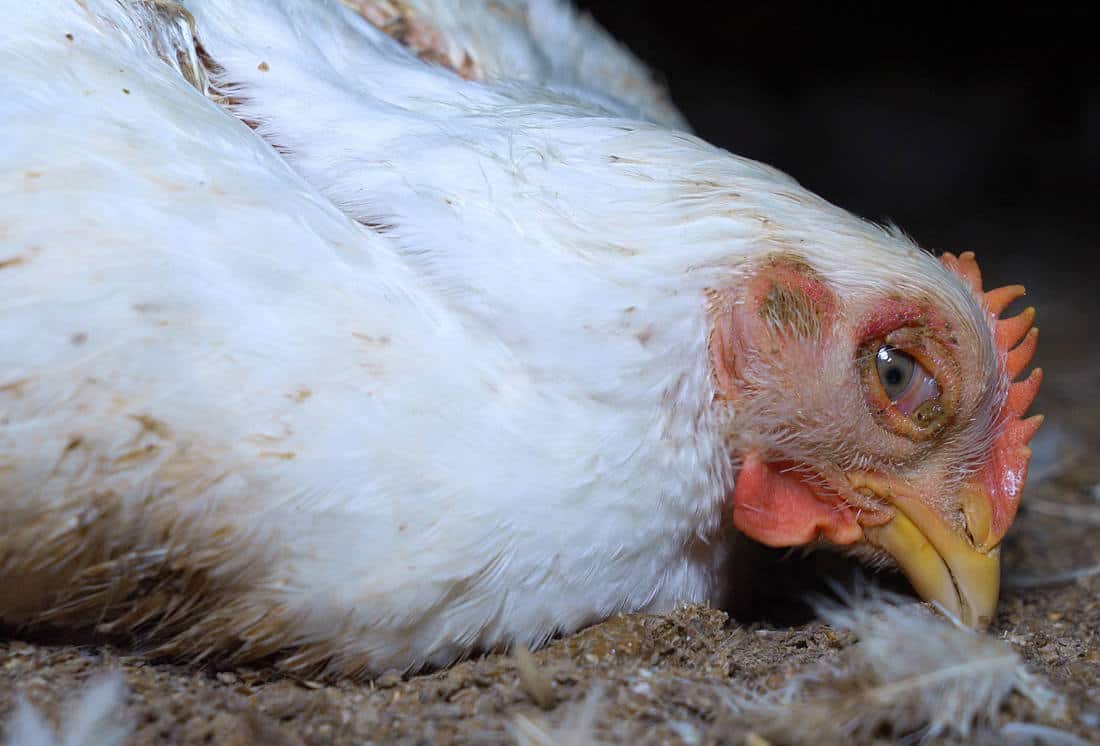
Chickens can have a hard time digesting beets. Yes, beets are high in minerals, vitamin C, iron, potassium, and magnesium which are good things! But they also contain oxalates that break down into calcium oxalate crystals when mixed with stomach acid.
Calcium oxalate can cause bloating and discomfort to chickens if they’re present in large enough quantities.
Another thing to watch out for is the beets’ high fiber content. Chickens consuming a high amount of fiber can make them nauseous and messes up their diet.
Always remember that chickens can eat beets only in moderation. Too much of everything can be harmful to your flock.
Since beetroots are high in content, always give them moderately.
Can beets affect chickens’ stool color?
Yes, feeding your chickens lots of beets can affect the color of their stool.
The juice from beets may give some chicken eggs a red or pink tint.
Beet juice can stain the eggs, which is a side effect. If you’re planning to sell your eggs, it’s best to steer clear of feeding them beets. Beets are a good source of fiber, vitamin C, and iron—which gives them their red color by way of betacyanin pigments absorbing sunlight as an energy source.
How to Grow Beets
Now that you know the benefits of beets to chickens, you might think about ways to grow beets by yourself. Growing beets is actually easy, and you can do that in five simple steps!
If you’re someone who wants to keep your sources organic to ensure they’re healthy, we recommend growing beets on your farm. Choosing to grow beets yourself also allows you to explore resources and discern what’s best for your flock.
Without further ado, here are five quick and simple steps to grow beets yourself:
1. Buy your beet seedlings.
Finding beet seeds is easy. They can be found in almost all garden shops and local nurseries.
2. Find a place to grow them.
When planting any seed, you should ensure the optimal place to grow them. If you have a large property, select an area covering a large, fertile soil. You can directly plant the seedlings there or opt to use pots.
3. Prepare the garden bed.
Till the soil. If you’re planting in winter, use heavy soil. Lighter soil is better during spring. According to some farmers, the best season for tilling is in the spring.
4. Sow the seeds.
Don’t place the seeds too near each other! The recommended distance between seeds is around 15 cm apart. Plant them at least 2 cm deep into the soil.
5. Water the seedlings daily.
Keep watering your seeds every day. They won’t need any additional watering unless you notice the soil looking like it will dry out completely.
6. Fertilize them.
There are many types of the best fertilizers for beets out there. You can choose all-purpose plant food, organic bone meals, or soluble seaweed powder.
7. Harvest your beets.
Once you see roots, it’s time to harvest your beets! You can now feed them to your broiler chickens after chopping them into smaller pieces. You can serve them raw or cooked.
Final Thoughts
Chickens are smart and fun to be around. Feeding them beets can be a great way to give them some extra nutrients or just improve their overall health.
We hope this article has answered your question and helped you know what the benefits of beets are to your chickens. The next time someone asks you “can chicken eat beets,” you can share with them what you know!
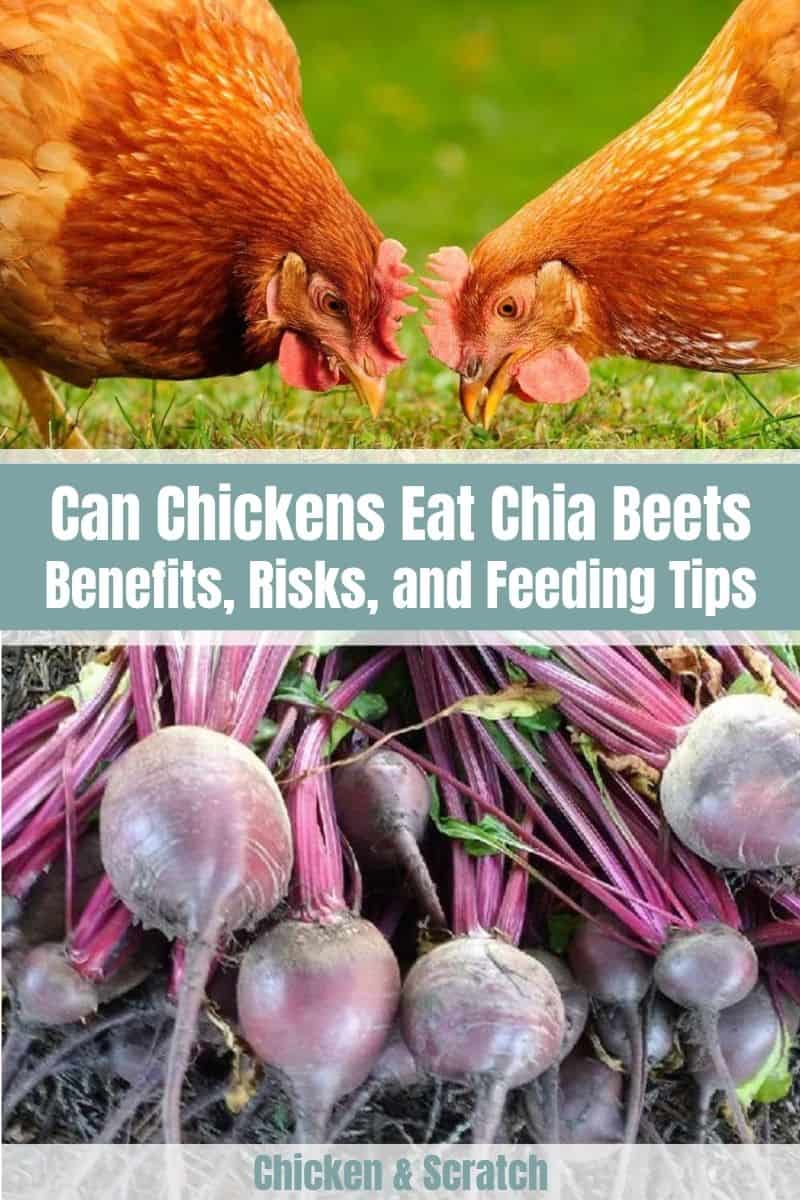

Joseph Hudson has been raising chickens for over 15 years. In 2018, he completed the Agriculture & Natural Resources program at Mt. San Antonio College. He currently raises over 1400 chickens on his 7.5-hectare farm. He keeps sharing his experience on raising healthy and happy chickens on Chicken Scratch The Foundry.
